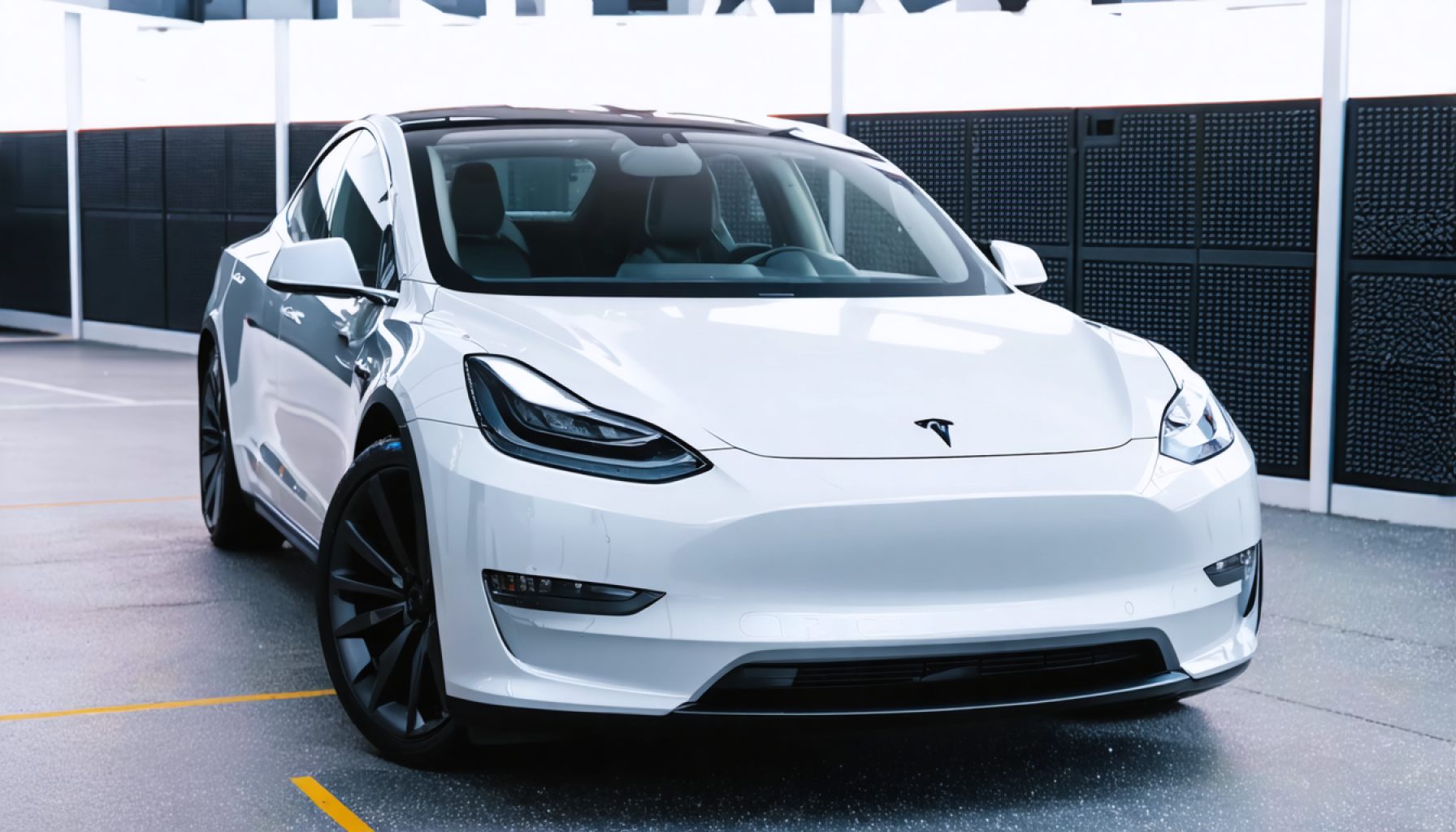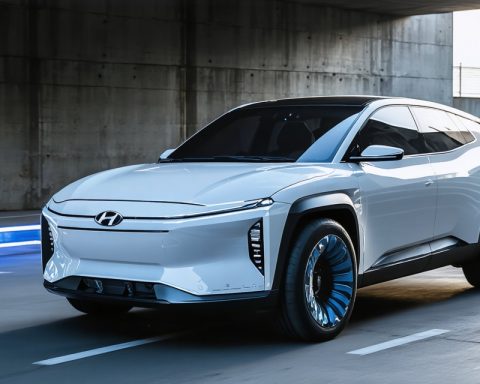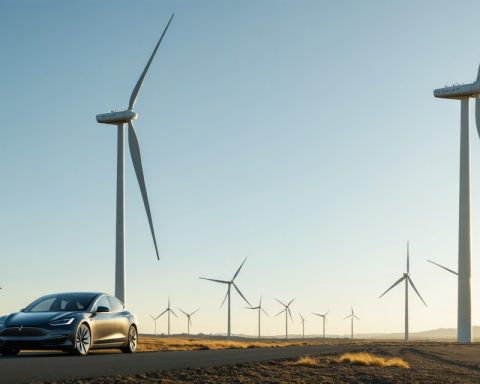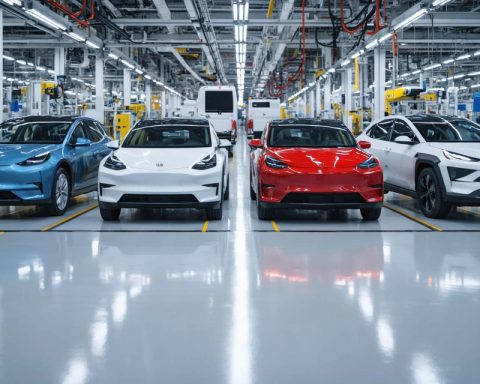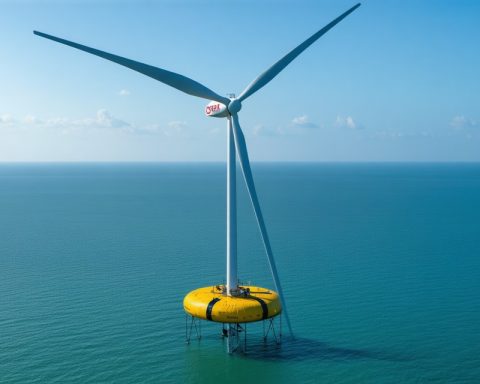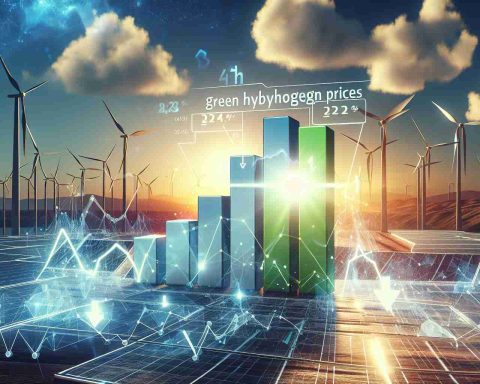- Tesla’s participation in Canada’s federal electric vehicle rebate program is currently frozen, raising concerns for potential buyers.
- The freeze follows an investigation into Tesla’s massive $43 million rebate claim over a single weekend, which required delivery of over 8,000 cars.
- Experts suggest Tesla may have anticipated the program’s pause, seeking rebates amid rising demand, inadvertently sidelining other automakers.
- Transport Minister Chrystia Freeland has initiated an investigation to ensure Tesla’s actions align with program guidelines, emphasizing transparency.
- The situation reflects wider geopolitical tensions, with Tesla becoming part of a larger trade dispute narrative between Canada and the U.S.
- Provinces like British Columbia and Nova Scotia have followed the federal decision, while Quebec still includes Tesla in its EV incentive program.
- This controversy highlights the complexities of policy-driven innovation and the importance of integrity in the transition to sustainable vehicles.
An electrifying controversy has erupted in the Great White North as Tesla faces a daunting roadblock—a freeze on its participation in Canada’s federal electric vehicle rebate program. The once-sparkling relationship has dimmed, leaving thousands of potential Tesla buyers in the dark.
Picture this: Tesla, always a step ahead, claiming a staggering $43 million from Canada’s innovative iZEV federal rebate program in a whirlwind weekend blitz. But suspicions ignited when news surfaced of the carmaker registering an eye-opening number of rebates—enough to warrant a closer look from curious eyes. The logistics alone seemed improbable, requiring the delivery of over 8,000 cars from just four locations over a mere weekend.
Behind the curtain, speculation whirred. Experts suggest Tesla anticipated the program’s imminent pause, preemptively securing rebates amid a projected surge in demand. Yet, the gamble has spotlighted an unforeseen complication: other automakers were left in the lurch, unable to access funds intended for their customers.
Amid the growing clamor, Chrystia Freeland, Canada’s resolute transport minister, has stepped firmly onto center stage. Freeland’s team is freezing these funds pending a rigorous investigation, underlining the need for clarity in a landscape tangled with speculation. Her commitment to transparency aims to resolve whether Tesla’s tactic adhered to the program’s guidelines.
But this isn’t merely a homegrown drama. As geopolitical tensions simmer between Canada and its southern neighbor, Freeland’s directive carries a dual purpose. Tesla’s exclusion indicates Canada’s maneuver against broader international pressures, with a nod to tariffs that have cast a shadow over trade relations. In this narrative, Tesla unwittingly becomes a pawn in a larger geopolitical chess game.
Provinces like British Columbia and Nova Scotia have mirrored the federal stance, setting a precedent with their recent exclusions of Tesla from similar programs. However, in a turn of fortune, Quebec’s freshly rebooted EV incentive scheme surprisingly still lists Tesla’s Model 3 and Model Y vehicles as eligible—at least for now.
This unfolding drama leaves Canadian automotive enthusiasts pondering their next move. It’s a powerful reminder that, in the world of policy and innovation, every strategic maneuver carries both potential rewards and unforeseen challenges. In this high-stakes game, integrity and clarity must light the way, ensuring that the drive to greener pastures remains unimpeded by clouds of controversy.
Frozen Funds: Tesla’s Struggle with Canada’s EV Rebate Program
Tesla and the Canadian EV Rebate Freeze: What You Need to Know
The recent suspension of Tesla’s participation in Canada’s federal electric vehicle (EV) rebate program has sparked widespread debate and intrigue. This decision could significantly impact potential buyers and developers alike. Here’s what you need to know and consider if you’re eyeing Tesla or any electric vehicle in Canada.
How the iZEV Program Works
The Incentives for Zero-Emission Vehicles (iZEV) program is designed to make electric vehicles more affordable for Canadian consumers. It offers rebates of up to $5,000 for qualifying EV purchases. However, recent disputes have raised questions about the distribution of these funds.
What Led to Tesla’s Suspension?
– Staggering Figures: Recently, Tesla registered claims that amounted to $43 million from the program over a single weekend, equating to over 8,000 vehicle deliveries.
– Suspected Strategy: Some experts believe Tesla anticipated the potential suspension of the program, leading them to expedite rebate claims.
Implications for the Industry
– Impact on Other Automakers: This move potentially disadvantages other manufacturers as funds that could have been allocated to them are temporarily unavailable.
– Potential for Future Oversight: The incident highlights the need for stricter monitoring of rebate programs to ensure fair distribution across all manufacturers.
Economic and Geopolitical Repercussions
– Tariff Tensions: This suspension also reflects the broader economic tensions between the US and Canada, with tariffs adding complexity to cross-border trade.
– Provincial Variations: While British Columbia and Nova Scotia align with the federal policy, Quebec has maintained Tesla in its scheme, highlighting inconsistencies in regional policies.
Possible Market Trends and Future Predictions
– Rise in EV Demand: Despite this controversy, the demand for EVs continues to grow, particularly in urban centers.
– Policy Adjustments: Expect updated policies that reinforce transparency and accountability in rebate allocations, potentially influencing market behaviors.
Actionable Tips for Potential Tesla Buyers in Canada
1. Stay Informed on Policy Changes: Keeping tabs on government announcements can help you navigate rebate eligibility and plan purchases accordingly.
2. Explore Provincial Incentives: With variations in regional policies, investigate additional incentives available in your province.
3. Consider Timing: Given the volatility of current incentives, timing your purchase to coincide with rebate program announcements can yield financial benefits.
Final Thoughts
Tesla’s recent predicament in Canada’s federal rebate program underscores the intricacies of navigating clean energy initiatives while balancing market fairness. Potential electric vehicle buyers should remain vigilant, considering both federal and provincial incentives when making purchase decisions. As the market stabilizes, it offers an opportunity to push for reforms that ensure more equitable access to resources for all automakers.
For further updates on electric vehicles and market dynamics, visit the official Tesla site and stay informed about future trends and opportunities.
